Hyundai Bayon vs Mercedes B Class - Differences and prices compared
Compare performance (90 HP vs 238 HP), boot space and price (20100 £ vs 33100 £ ) at a glance. Find out which car is the better choice for you – Hyundai Bayon or Mercedes B Class?
Costs and Efficiency:
Price and efficiency are often the first things buyers look at. Here it becomes clear which model has the long-term edge – whether at the pump, the plug, or in purchase price.
Hyundai Bayon has a clearly advantage in terms of price – it starts at 20100 £ , while the Mercedes B Class costs 33100 £ . That’s a price difference of around 13072 £.
Fuel consumption also shows a difference: Mercedes B Class manages with 2.50 L and is therefore significantly more efficient than the Hyundai Bayon with 5.80 L. The difference is about 3.30 L per 100 km.
Engine and Performance:
Under the bonnet, it becomes clear which model is tuned for sportiness and which one takes the lead when you hit the accelerator.
When it comes to engine power, the Mercedes B Class has a decisively edge – offering 238 HP compared to 90 HP. That’s roughly 148 HP more horsepower.
In acceleration from 0 to 100 km/h, the Mercedes B Class is convincingly quicker – completing the sprint in 6.50 s, while the Hyundai Bayon takes 11.90 s. That’s about 5.40 s faster.
There’s also a difference in torque: Mercedes B Class pulls significantly stronger with 450 Nm compared to 172 Nm. That’s about 278 Nm difference.
Space and Everyday Use:
Beyond pure performance, interior space and usability matter most in daily life. This is where you see which car is more practical and versatile.
Both vehicles offer seating for 5 people.
In curb weight, Hyundai Bayon is somewhat lighter – 1175 kg compared to 1405 kg. The difference is around 230 kg.
In terms of boot space, the Mercedes B Class offers hardly perceptible more room – 455 L compared to 411 L. That’s a difference of about 44 L.
When it comes to payload, Mercedes B Class to a small extent takes the win – 550 kg compared to 460 kg. That’s a difference of about 90 kg.
Who wins the race?
The Mercedes B Class proves to be outperforms in nearly all aspects and therefore becomes our DriveDuel Champion!
Mercedes B Class is the better all-rounder in this comparison.
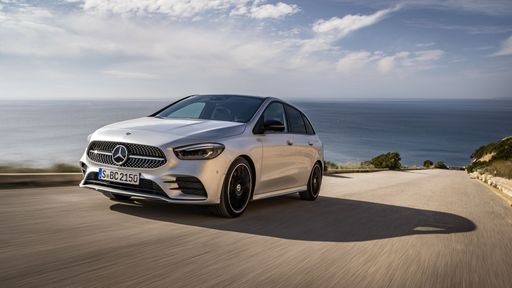
Mercedes B Class
Costs and Consumption
View detailed analysis
Engine and Performance
View detailed analysis
Dimensions and Body
View detailed analysis
Hyundai Bayon
The Hyundai Bayon slips neatly between city runabout and small SUV, offering surprising practicality and a fresh, confident design that stands out in urban traffic. It's an easy buy for shoppers who want smart packaging, tidy handling and a dash of personality without fuss — a sensible little crossover that makes everyday driving a bit more enjoyable.
details




Mercedes B Class
The Mercedes B-Class is a smart, grown-up compact people carrier that dresses everyday practicality in a near‑premium polish, perfect for buyers who want comfort and a classy badge without the theatrics. It won’t set your pulse racing on a back road, but it will make school runs, commutes and grocery hauls feel pleasantly civilized — a reliable, slightly posh companion for real life.
details
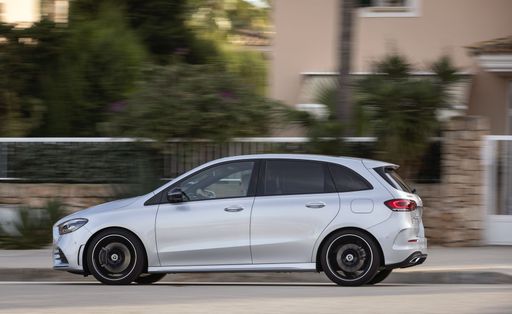
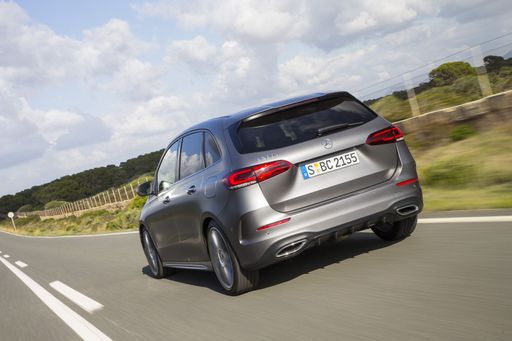
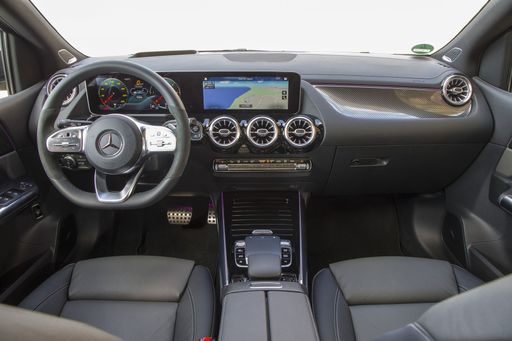
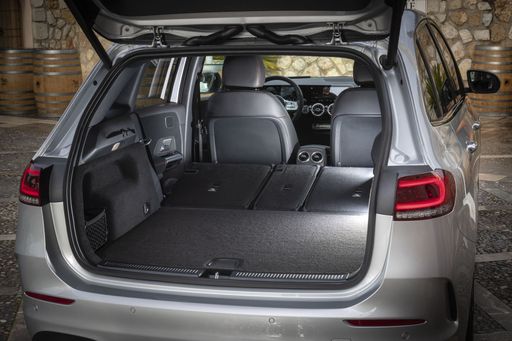
Costs and Consumption |
|
|---|---|
|
Price
20100 - 25800 £
|
Price
33100 - 52500 £
|
|
Consumption L/100km
5.80 L
|
Consumption L/100km
2.5 - 6.9 L
|
|
Consumption kWh/100km
-
|
Consumption kWh/100km
-
|
|
Electric Range
-
|
Electric Range
83 km
|
|
Battery Capacity
-
|
Battery Capacity
12.90 kWh
|
|
co2
130 - 132 g/km
|
co2
56 - 156 g/km
|
|
Fuel tank capacity
-
|
Fuel tank capacity
35 - 51 L
|
Dimensions and Body |
|
|---|---|
|
Body Type
SUV
|
Body Type
MPV
|
|
Seats
5
|
Seats
5
|
|
Doors
-
|
Doors
5
|
|
Curb weight
1175 - 1200 kg
|
Curb weight
1405 - 1745 kg
|
|
Trunk capacity
411 L
|
Trunk capacity
405 - 455 L
|
|
Length
-
|
Length
4419 mm
|
|
Width
1775 mm
|
Width
1796 mm
|
|
Height
-
|
Height
1562 mm
|
|
Max trunk capacity
-
|
Max trunk capacity
1440 - 1540 L
|
|
Payload
450 - 460 kg
|
Payload
505 - 550 kg
|
Engine and Performance |
|
|---|---|
|
Engine Type
Petrol
|
Engine Type
Plugin Hybrid, Petrol MHEV, Diesel
|
|
Transmission
Manuel, Automatic
|
Transmission
Automatic
|
|
Transmission Detail
Manual Gearbox, Dual-Clutch Automatic
|
Transmission Detail
Dual-Clutch Automatic
|
|
Drive Type
Front-Wheel Drive
|
Drive Type
Front-Wheel Drive, All-Wheel Drive
|
|
Power HP
90 HP
|
Power HP
116 - 238 HP
|
|
Acceleration 0-100km/h
11.9 - 13.3 s
|
Acceleration 0-100km/h
6.5 - 10 s
|
|
Max Speed
-
|
Max Speed
200 - 250 km/h
|
|
Torque
172 Nm
|
Torque
200 - 450 Nm
|
|
Number of Cylinders
3
|
Number of Cylinders
4
|
|
Power kW
66 kW
|
Power kW
85 - 175 kW
|
|
Engine capacity
998 cm3
|
Engine capacity
1332 - 1991 cm3
|
General |
|
|---|---|
|
Model Year
2025
|
Model Year
2024 - 2025
|
|
CO2 Efficiency Class
D
|
CO2 Efficiency Class
B, D, E, F
|
|
Brand
Hyundai
|
Brand
Mercedes-Benz
|
What drivetrain options does the Hyundai Bayon have?
The Hyundai Bayon is available as Front-Wheel Drive.




